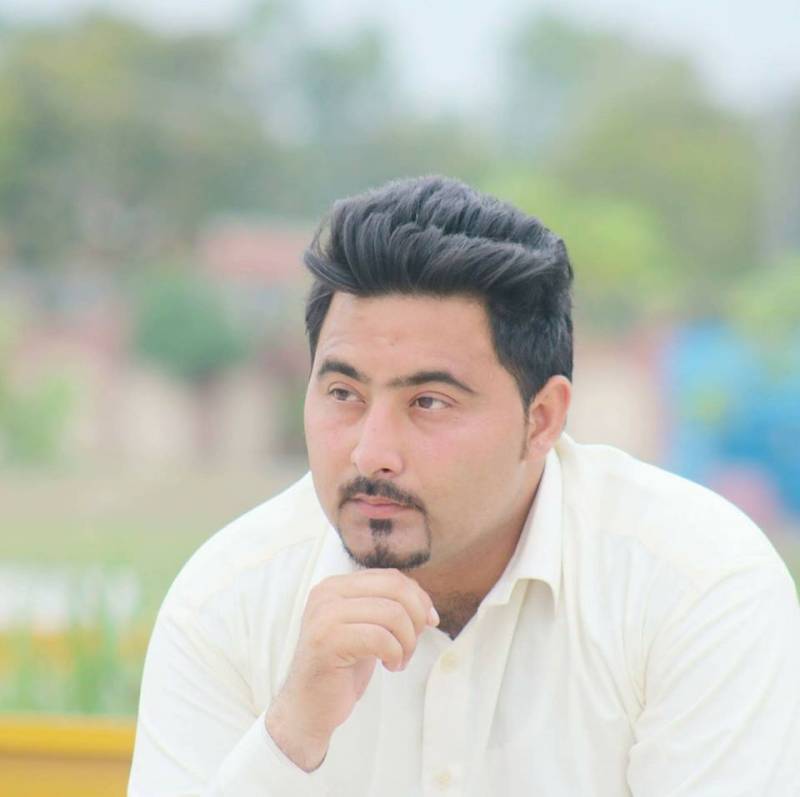The cold blooded murder of Mashal Khan has shed light on the incontestable state of religious discourse, which so far has proved to be an effective tool in polarization of Pakistani society.
The statement of one of the eyewitnesses of Mashal Khan’s mob killing seems to have brought the truth to the limelight again, from the echoes of the chants of the agitated mob.
It has exposed the ugly side of our radicalised society where people have fallen to a new low of settling their scores and personal grudges in the name of divine and holy beings.
Abdullah, who is a survivor of the mob attack on Mashal Khan, stated in the court on Monday that Mashal Khan’s interview to a Pashto TV channel discussing the malpractices by the university administration, led to the notice issued by the same administration claiming that Mashal, Abdullah and Uzair might have committed blasphemy.
‘’After that, on April 13th, the university administration called me in the Mass Communications Office and asked me to give a statement that Mashal is involved in blasphemy but I refused to do it,’’ Abdullah stated in the court.
It is ironic that some might have still bought the killer’s account in Pakistan, as they are still busy spewing venom against poor Mashal Khan on their social media walls.
That’s another dark side of being accused of blasphemy in Pakistan; people will immediately start hating you without even looking into the evidence around the accusation, no matter how innocent or pious you are.
Those who are descendants of globally famous Sufis of India, and have lived together with almost all religions for a thousand years, haven’t stooped to such a folly all of a sudden.
It has taken them a few decades of brainwashing, both in public schools and in the mullah owned mosques, to become the monsters who want to purge their sins with other’s blood.
The elephant in the room is yet to be discovered or is perhaps being ignored deliberately. The state here is inaccurately being portrayed as victim by those who believe it’s the non-state actors challenging the writ of the ‘poor’ state, completely ignoring the fact that radicalisation and pro-extremism policies of the deep state of Pakistan might have led to this degeneration, making them accomplices, or rather the handlers, of this crime.
It’s the leadership of a country, which shapes the face of a nation and grooms its citizens to play a role in the global arena. However, it seems that the state of Pakistan never wanted their citizens to grow up as international leadership and rather designed their school curriculum to produce brainless zombies who would go into feeding frenzy with a single glimpse of living human blood.
Looking at the way the mob tormented poor Mashal Khan reminded me of Dante’s famous lines, “So many, I had not thought death had undone so many”.
One wonders why the state would do that. Precisely to produce the slaves who would be incapable of grasping the rational view of things and would be easier to control through their incapability of asking the right questions.
However, it seems that some hard nuts still managed to keep their sanity alive, even in such a suffocating environment, although they were picked up, tortured and cast down for trying to reverse the zombifying spell.
These poor beings, according to their own testimonies, were targeted with unspeakable torture including severe beatings, punches on the face, hunger, sleep deprivation and even sodomy as reported by Ahmad Waqas Goraya, one of the missing bloggers who was later released by his captors.
Waqas, unlike the other abducted activists who chose to keep mum over their ordeal, was brave enough to shed light on the kind of savagery they were subjected to while pointing fingers at the military agencies for their abduction and torture.
This was not the first time law enforcement agencies come under tenable spotlight for abducting or torturing the citizens of their own country. Many journalists and human rights activists have been abducted and found dead in a cryptic manner in the past as well, and people of Pakistan were given no details about the culprits of such abductions or assassinations.
Unfortunately, his account seems to be unable to dent the strong foundations of systematic abuse of human rights activism in Pakistan. This vigilantism that we have witnessed again in Mashal Khan’s case is merely a product of the impunity that the state of Pakistan seems willing to provide to the people who believe in shaping Pakistan under their strong clutches, be those the clergy, military or political establishment.
That’s why any measurements to provide justice to Mashal’s family, or to curb puritanism, would be insufficient till the state decides to really address the root causes of the menace, which is the environment of impunity for certain sections of state and society.
The university administration, and those who wanted poor Mashal dead, merely used the same tool that the state had been using against the civilian population of the country for decades, to shut any criticism or dissent.
This would need a strong will by the civil and military leadership, to give up a lot of malpractices and powers that they have enjoyed against the citizens of their own country, such as forced abductions and torture without trial, which are often carried out by both the police and military agencies in certain cases.
Although demanding all that sounds like wishful thinking, the government of Pakistan would also need to repeal the loopholes in their judicial and legal system, which also give birth to the hostile environment towards free speech and thought in the country, packed with heavily talented and energetic youth like Mashal Khan. Rest in peace.






